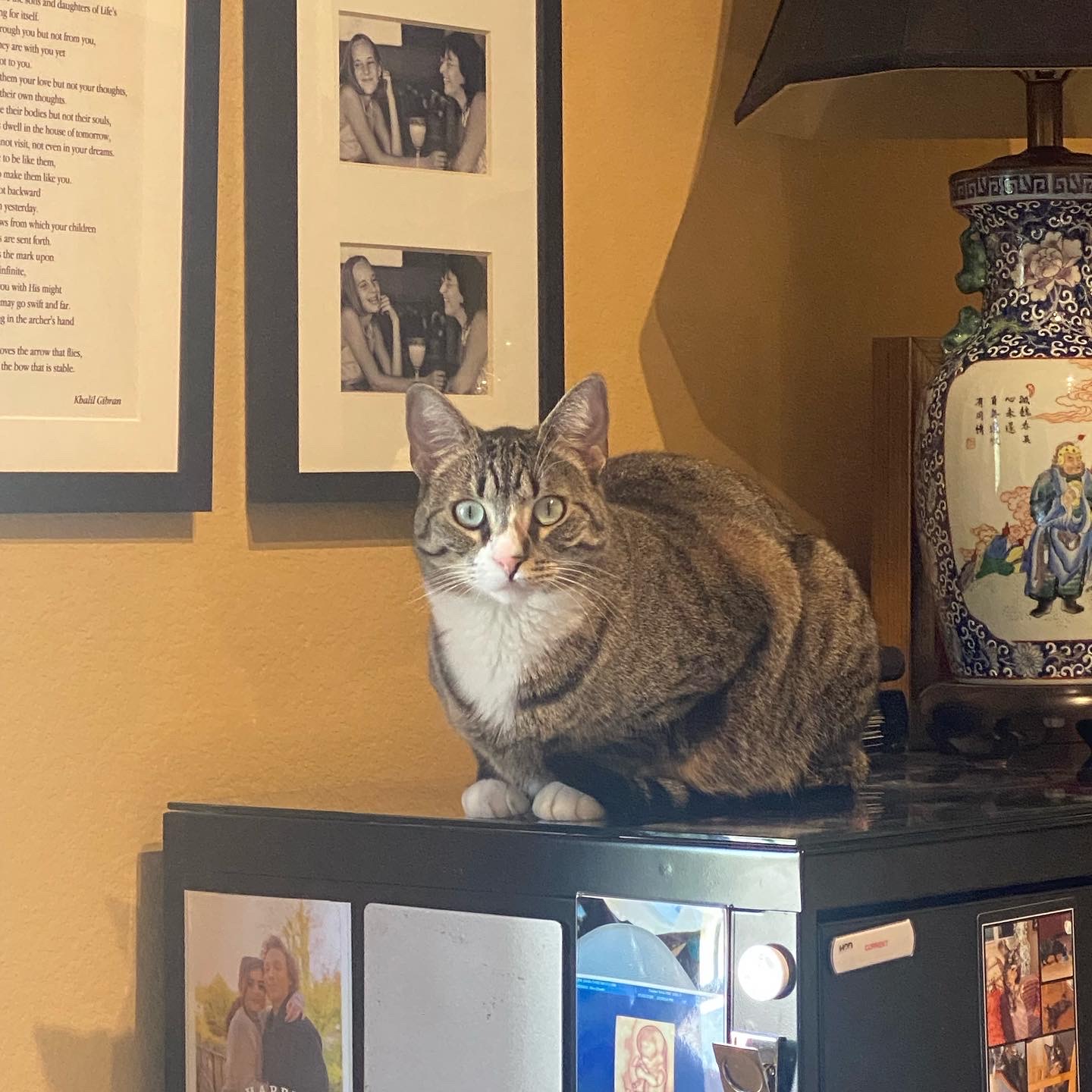I am sure there is a skit or two on SNL about needing and taking a mental health day. Yet, the way work and life have evolved in our post-industrial age makes the burnout we feel more real than many of us want to admit. The following article outlines my thinking on when to take and how to ask for a mental health day.
The only additional piece of advice I would add is old news to those who have been playing with me for any amount of time. Make sure you know your top 5 strengths and remember to use them in good times and in times when you take a mental health day!
Enjoy the article, remember to know and use your strengths and share your thoughts and experience. We all learn best when we get to learn from others.
7 signs you need a mental health day off work – and how to ask for one
Although the reasons may vary (a sudden break-up, a stronger-than-average feeling of anxiety, a stress-filled week, etc.) the feeling is universal: the need to stay home from work to get some rest and regroup. Yet while you’ve likely experienced plenty of signs you need a mental health day before, it can be difficult to know what to say to your boss when you want to take time off for this reason — is it OK to just be honest?
Yes, according to Andrea Goeglein, a psychologist and founder of ServingSuccess. “Your mental health is your responsibility, and no one else’s — not your boss’, not your partner’s, not your children’s,” she tells Mic. “You need to care enough about yourself to ask for what you need and can’t expect others to read your mind.”
Mental health days can be crucial not only to help you re-energize, but to help ward off workplace burnout — an issue so common that the World Health Organization (WHO) recently announced that it’ll be included in its upcoming handbook of conditions and diseases. “Mental health days are really driven by the degree to which our functioning at work is diminished,” Joshua Klapow, Ph.D., a clinical psychologist and host of The Kurre and Klapow Show, tells Mic. “This is caused by the presence of psychological, emotional, behavioral, and/or physiological symptoms, from stress to anxiety to anger to distress.”
While some people might feel guilty taking mental health days because they believe they’re only meant for those actually suffering from mental illness, getting that time off can help restore the wellbeing of anyone, regardless of if they have clinically diagnosed disorders. Here, Klapow and other experts weigh in on clues that you may need to take a day off, as well as how to go about asking for it if you’re intimidated to do so.
Sign #1: You’re more disorganized than usual
Look, most of us aren’t naturally as organized as Marie Kondo, but if you’re usually pretty put together and notice that lately, you’ve been losing track of tasks or your bedroom floor’s become a tornado of clothing, it may be a clue that you need a break. “Whether it’s forgetting simple or routine tasks, misplacing things, or missing meetings/appointments, it may be time for a mental health day,” Kailee Place, licensed professional counselor at Shifting Tides Therapeutic Solutions in Charleston, SC, tells Mic.
Place adds that when running on fumes, you’re definitely not at peak functioning, and it’s easier to make small mistakes or become less organized. “Take this as a sign that it may be time to recharge,” says Place.
Sign #2: You’re exhausted all the time
If you find that for several days in a row, you’re struggling with insomnia, have trouble getting out of bed each morning, or still feel tired even when you get enough sleep, it could be your brain’s way of sending out a warning that something’s amiss and you need some time off, says Dr. Goeglein. If this is the case, assess what’s really going on — ideally, before it causes you to collapse.
“Getting to the point of pure exhaustion leading to tears, isolation, or feelings of losing control absolutely means you need a mental health day — or three,” says Place.
She adds that while you might work yourself ragged at work because you feel that’s what’s expected of you, “pushing yourself to the point of feeling exhausted is helpful for no one.” When you find yourself at this point, says Place, “It may be time to take a few days away from your duties to disconnect and ramp up the self-care and possibly even evaluate how your job or current lifestyle fits into your life.”
Sign #3: You’re overly emotional
Similarly, if you find yourself tearing up in the work bathroom over a personal issue, it could indicate that something’s off regarding your mental health. “Our emotions can drive our functional abilities at work,” says Dr. Klapow. “Then, these limits in our functional abilities can drive our thoughts and emotions and heighten them.”
When your emotions are magnified or seem uncontrollable, taking a day to refresh can be key to setting things right — as can getting professional help if you think that isn’t going to be enough.
Sign #4: You’re fighting with everyone
Even people who are typically the most easygoing of their friends or co-workers can end up getting impatient or testy when they need time off. “If you’re becoming more snappy or snarky with the people around you, it may be time to take a day to decompress,” says Place. “When we’re feeling generally more content and centered, our threshold for small inconveniences or annoyances is much higher than when we’re worn out.”
Dr. Goeglein adds that if you’re not sure if you’re acting differently than usual, pay close attention to how you react to situations and people — say, if you curse during a meeting when you normally wouldn’t, or shout at an employee instead of speaking in a calm tone.
Sign #5: You’re having trouble concentrating
When a task that would usually take just a few minutes ends up taking you an hour, or a project you hand in is covered in mistakes you’d otherwise catch, it could mean you need a break from your daily grind.
“Cognitively, when we’re feeling burnt out, we can have a hard time with concentration and memory,” explains Dr. Klapow. “As a result, our thoughts can feel either too slow or too fast, and we can make mental errors on tasks that are routine.”
Taking a mental health day, he adds, can help boost your concentration again and get you back to normal.
Sign #6: You’re feeling physically sick
Everyone reacts to stress in different ways, but many people experience physiological responses when their mental health needs tuning up. “Take note if you feel increased muscle tension or have more frequent headaches,” says Dr. Klapow. “Or, perhaps you have an upset stomach, notice cramps in your muscles, or feel more fatigued.”
Of course, these kinds of problems can be signs of a physical illness, but if you’ve ruled that out, consider that they may instead be tied to your mental wellbeing and indicate that something’s wrong.
Sign #7: Other people notice that you’re not yourself
“Sometimes, we’re just not great at self-assessment, so if the people around you begin making comments — such as seeing if you need help or asking if you’re doing OK — it may mean it’s time to be more present and see how you’re feeling,” says Place. “No one can run at full speed all the time; though that may be an expectation you have for yourself, it’s an unattainable one.”
She says it’s important to listen to the people around you, even if you’re not thrilled at the idea of taking time off work. “You’re capable of being at your best when you allow yourself some downtime,” adds Place.
How to ask for a mental health day
“Asking for a ‘mental health day’ can have a stigma attached to it,” says Dr. Klapow, adding that often, the term “mental health” has a much stronger and potent connotation than what the ask is actually for. If you’re worried that your boss will judge you because of the request, Dr. Klapow notes that “there is no mandate that you tell your employer it is a ‘mental health day.'”
Instead, he says, you can ask for a personal day, sick day, or vacation day, which all tend to have less stigma yet serve a similar function. “Taking the day off to rest, recuperate, gain composure, hydrate, eat well, and get our bodies — and minds — back to top functioning shape is no different than taking a sick day,” Dr. Klapow says.
Dr. Goeglein adds that in order to make sure your request gets approved, “don’t ask so much as instruct your supervising manager that you need a day off.” The wording, she adds, can be something like this: “I want to finish this project and have it succeed; I need a day to step away from the challenges and focus on the possibilities.” Or, “I need a break and I want to take one before I break. I am taking tomorrow off, and will return ready to find the solutions we need.”
An employee prioritizing their wellbeing can actually be seen as impressive, says Dr. Goeglein. “Letting your boss know you feel burned out means you have a trusting relationship and you want to collaborate on finding a solution,” she explains. “It’s better to find solutions to the causes of burnout in the workplace than have to figure out how to cover for the loss of talent because of an extended medical leave that could have been avoided.”
That said, once your request is approved, be sure not to waste the opportunity by worrying about the work you’re missing. “Make sure to actually take it off — no phone calls from work and no emails either,” says Dr. Goeglein. “Ask someone else to cover your phone and emails if necessary and totally disconnect.” Instead of working, “do the things that recharge your energy, from sleeping in to taking a long walk to an afternoon of retail therapy and lunch,” she adds. “The goal is to relax and savor every moment of your time off; the alarm clock will go off again tomorrow.”
Dr. Klapow adds that during your time off or shortly afterward, you can also “spend some time figuring out how you got to the place of needing the day off.” That can mean creating an action plan for how to prioritize your mental health going forward, or talking about your stress with a friend or therapist. By the time you return to work, you should hopefully be feeling more rested and energized — but if you find that your job continues to have a negative impact on your mental health no matter what you do, it might be time to re-evaluate your situation and find a path that’s a better fit.




